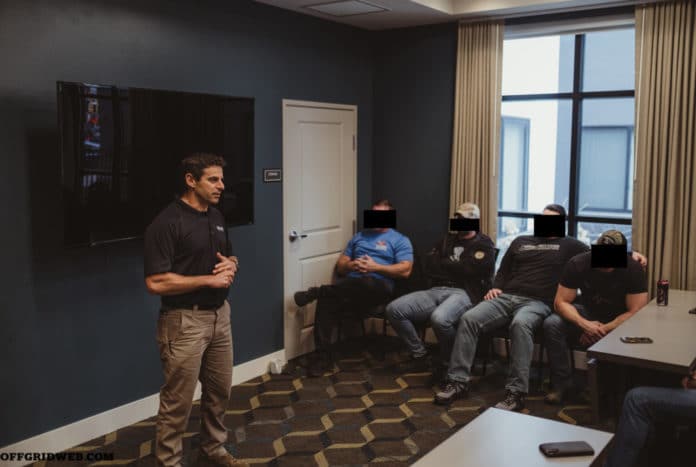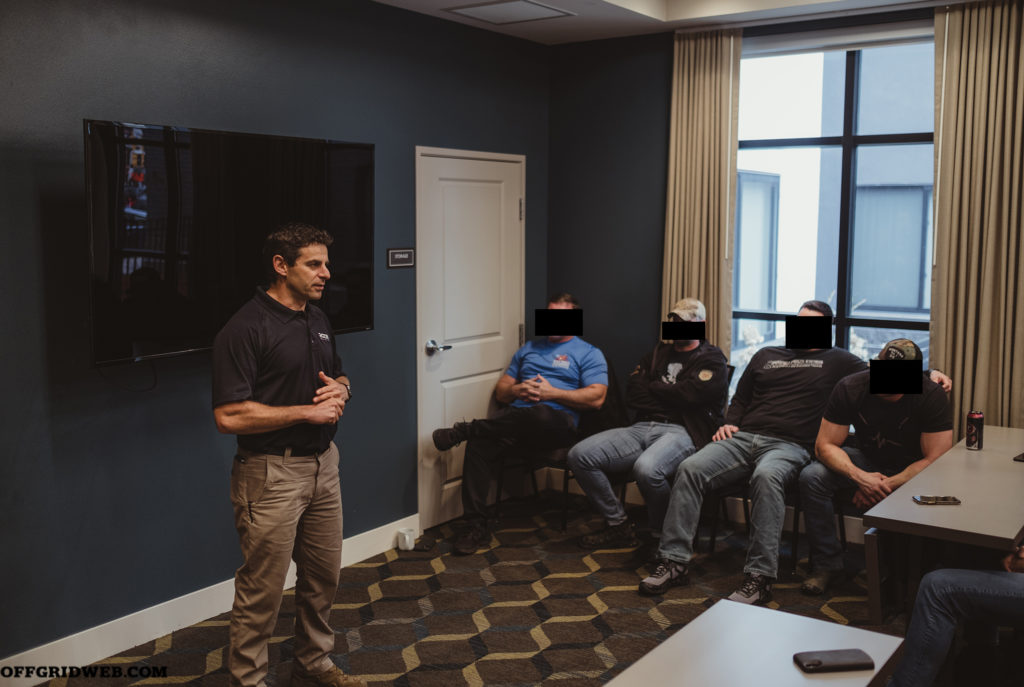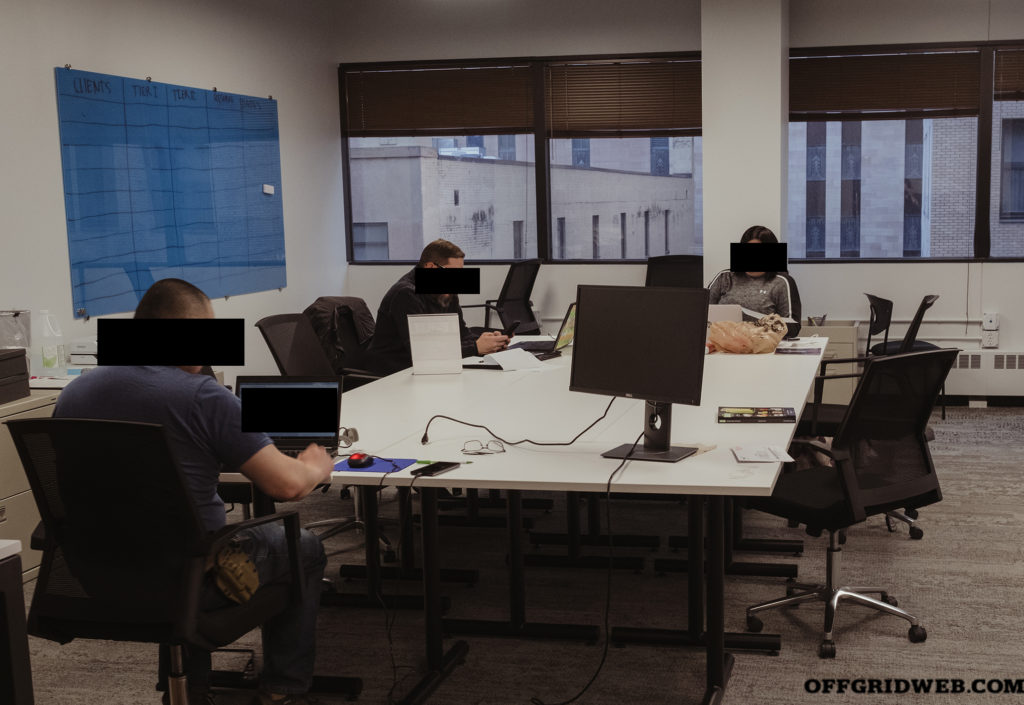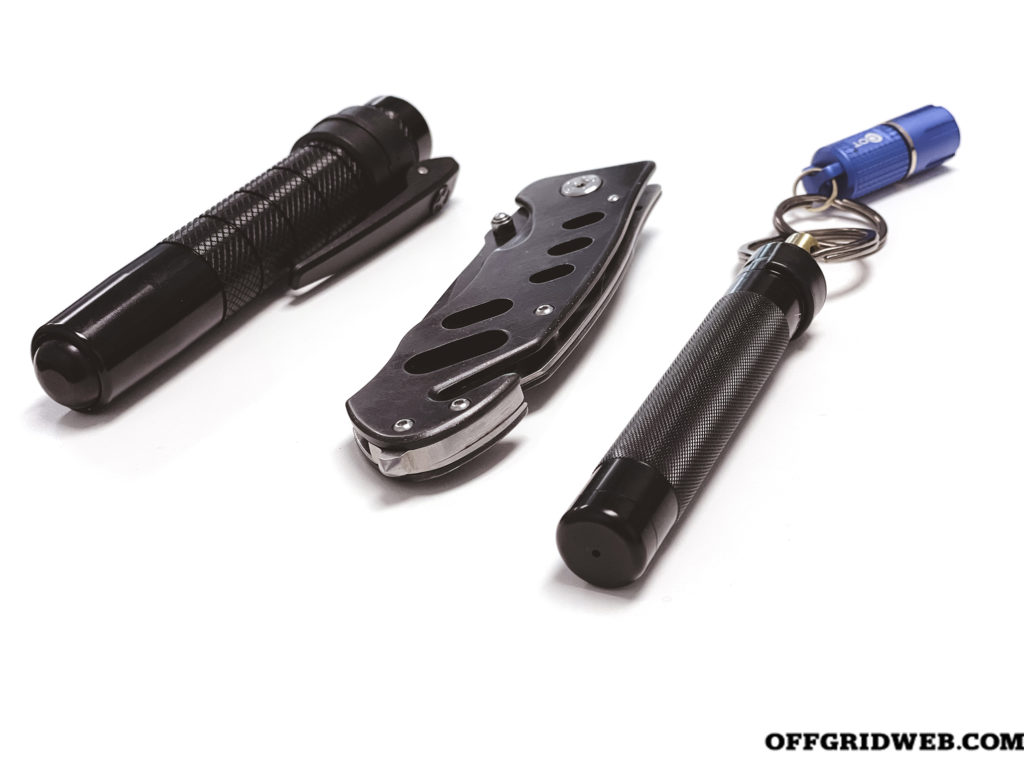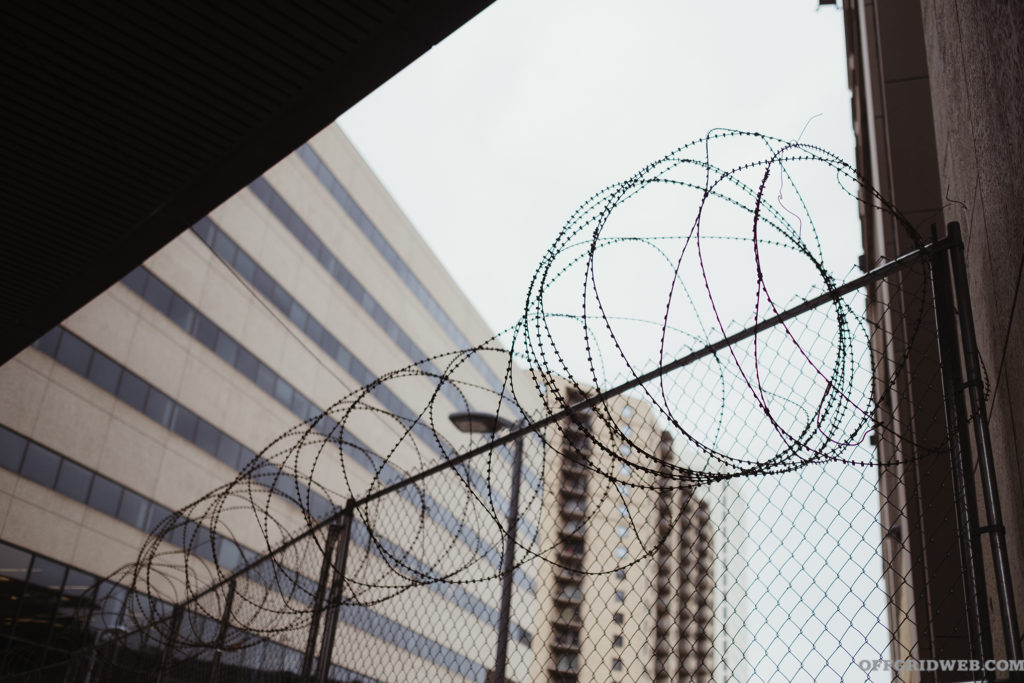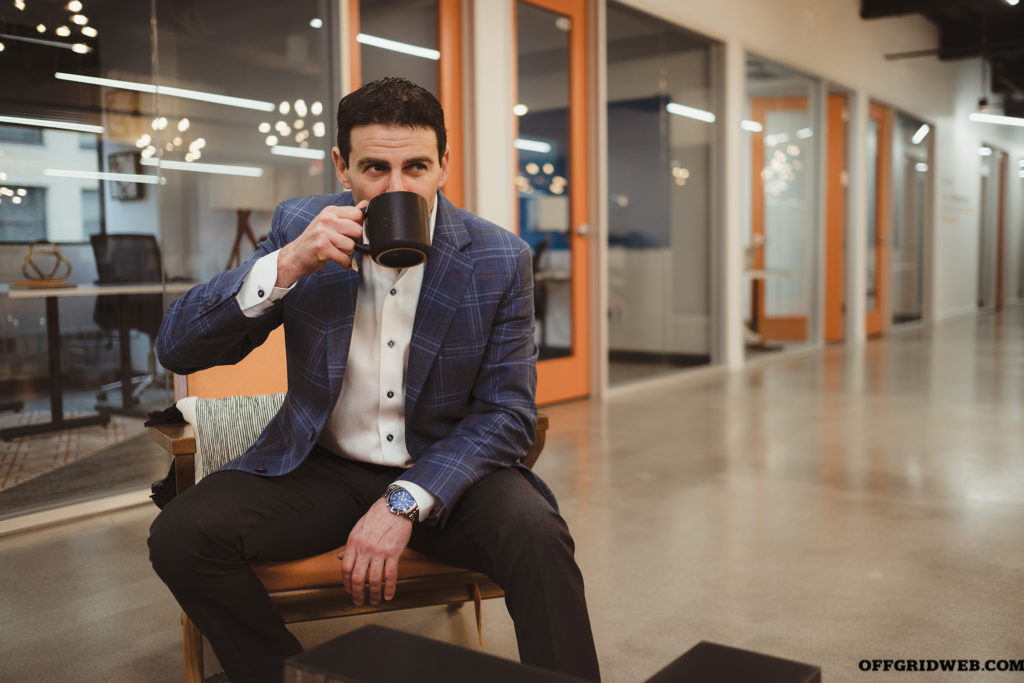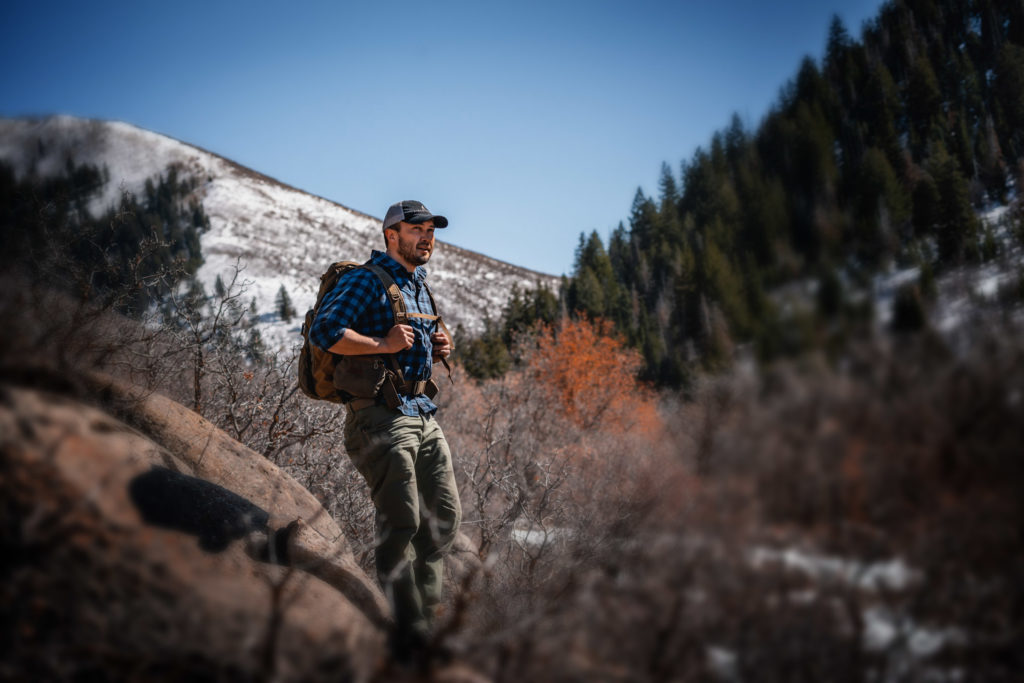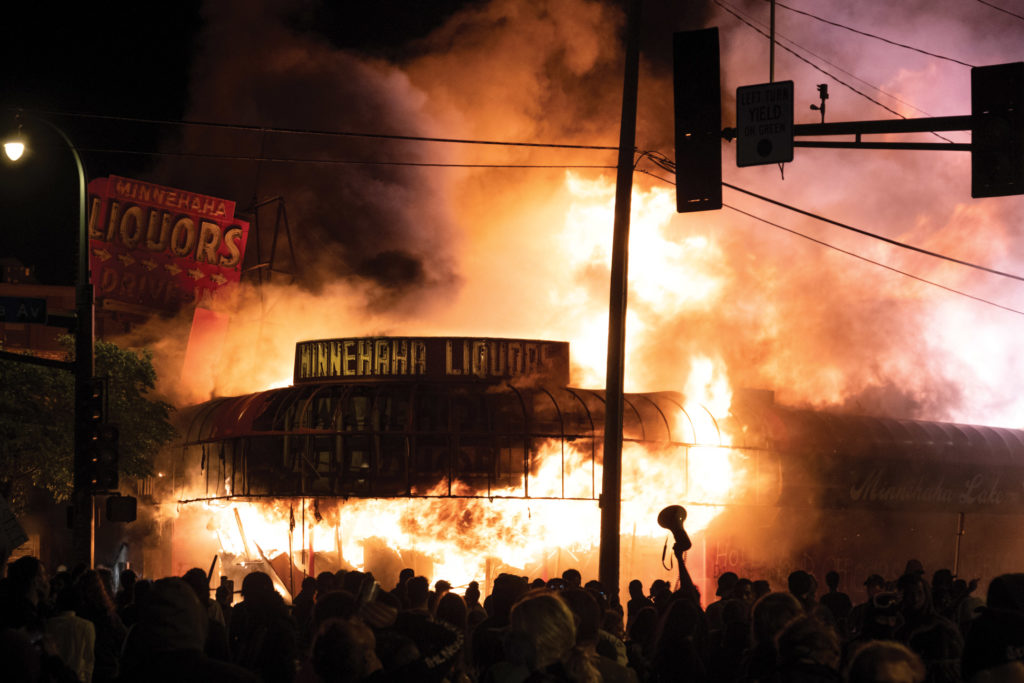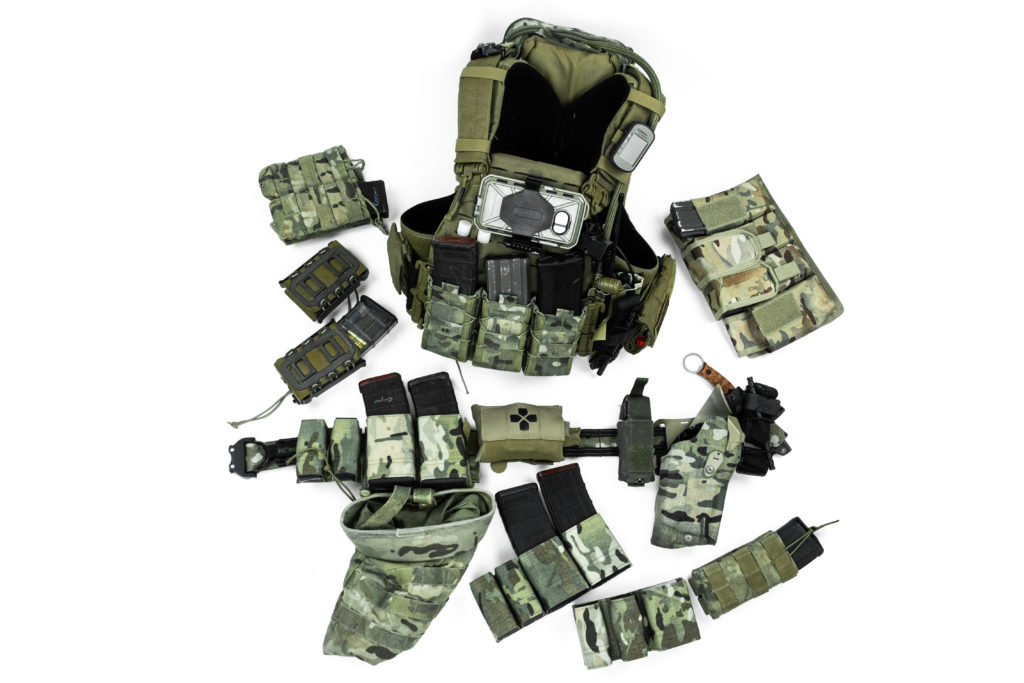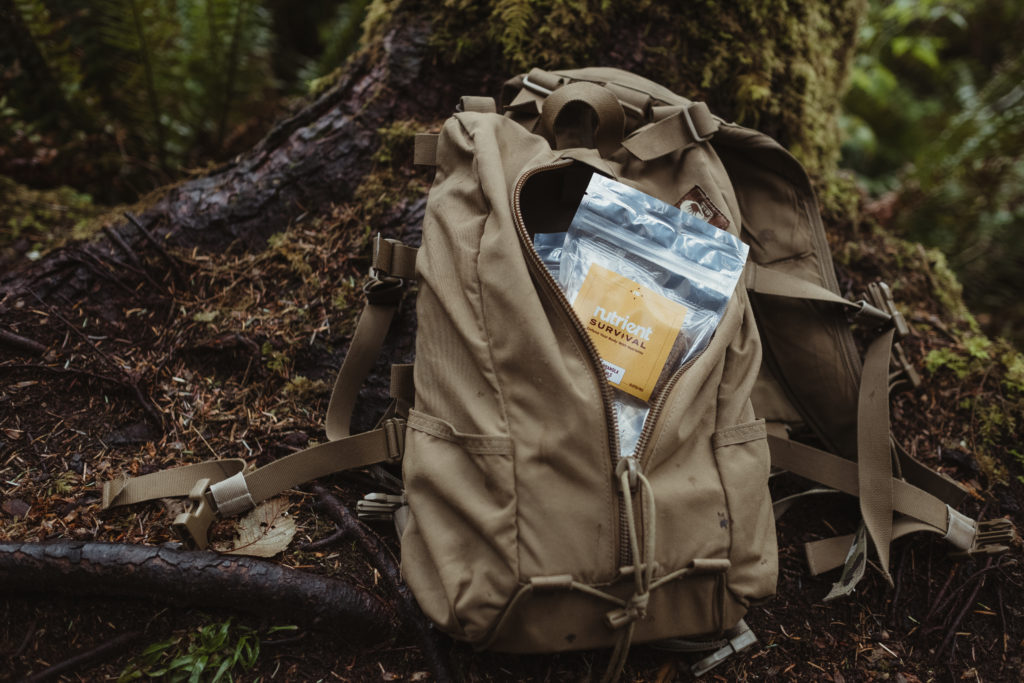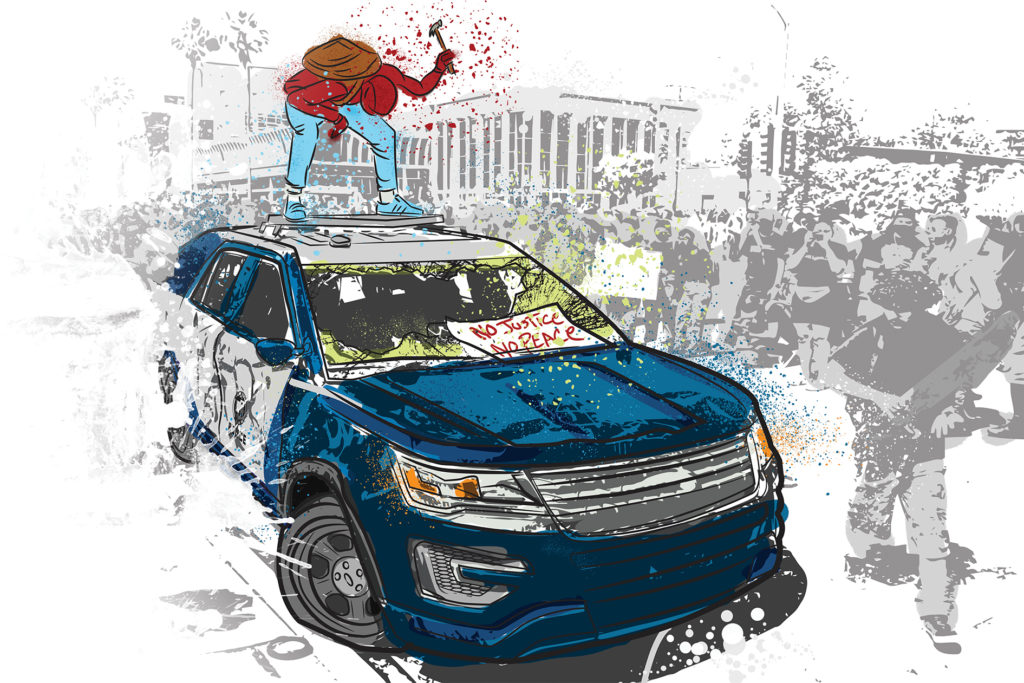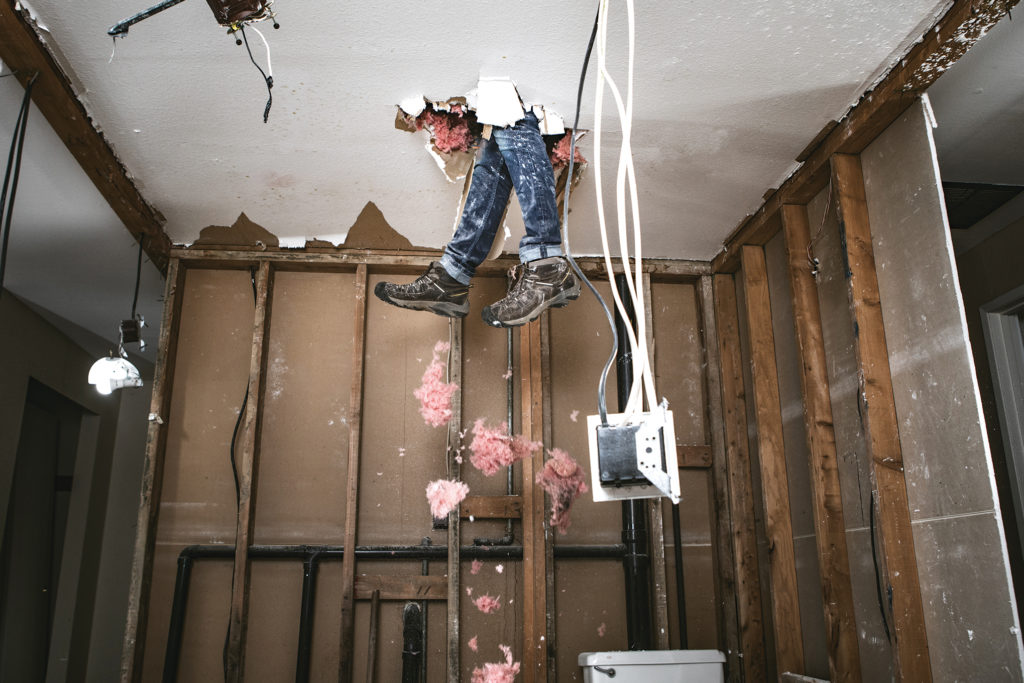For nearly 20 years, Michael Rozin has focused on terrorism prevention and security. As the president and a founding partner at Rozin Security, he’s skilled in proactive protection against terrorists and other highly motivated perpetrators of violence.
Rozin began his career in the Israel Defense Forces as a sergeant in the specialized combat unit known as Barkan. After his military service, he completed an advanced security and anti-terrorism training program at the Israel Security Academy under the oversight of the Israel Security Agency. He then joined the Israel Airport Authority, where he worked as a security agent for Ben-Gurion International Airport in Tel Aviv. In 2005, he received an award for excellence for his performance at the agency.
In 2006, Rozin was hired as the Special Operations Security Captain at the Mall of America in Minnesota. In this role, he developed, implemented, and managed a behavioral detection unit and various programs focused on counterterrorism at this densely populated venue. These initiatives proved to be so effective that they were presented to the U.S. House of Representatives Committee on Homeland Security as a model for security in the private sector.
Rozin is a regular guest speaker at law enforcement conferences on counterterrorism and other proactive security methods. He has trained a number of law enforcement and security agencies on counterterrorism and tactical response techniques.
In addition, Rozin works as a faculty member at the University of Minnesota’s Master of Science in Security Technology program. In this role, he teaches the principles of security risk assessment and the integration of psychology, behavior threat detection, and technology in a security operation.
Rozin is a graduate of the Institute of Counter-Terrorism in the Interdisciplinary Center in Hertzliya, Israel, where he attended a masters level executive counterterrorism studies program. He’s also a certified Krav Maga instructor and fluent in Russian, Bulgarian, Hebrew, and English.
RECOIL OFFGRID: Tell us about your service in the IDF. Did you specialize in anything particular? How did that prepare you for work within the Security Services later on?
Michael Rozin: I was honored and lucky to be able to serve in the Israel Defense Forces and contribute to the safety and security of the State of Israel. I served in a unit called “Barkan.” Barkan is a small special operations unit equipped with a Stinger anti-aircraft missile and tasked with preventing enemy aircraft from reaching their targets in difficult environments.
My service in the IDF helped me learn how to be organized, disciplined, and capable of going beyond what I thought was possible. I enjoy the power of challenge and discomfort. I developed some of the best friendships in my life, as well as a keen interest in serving the State of Israel and protecting it from threat actors who could immediately cause harm to my family and friends. That call to protect, and the impact of effective security, is what directed me toward my career. My dream became to work for the security services in Israel and continue to serve and protect my country and my family while working in the private sector.
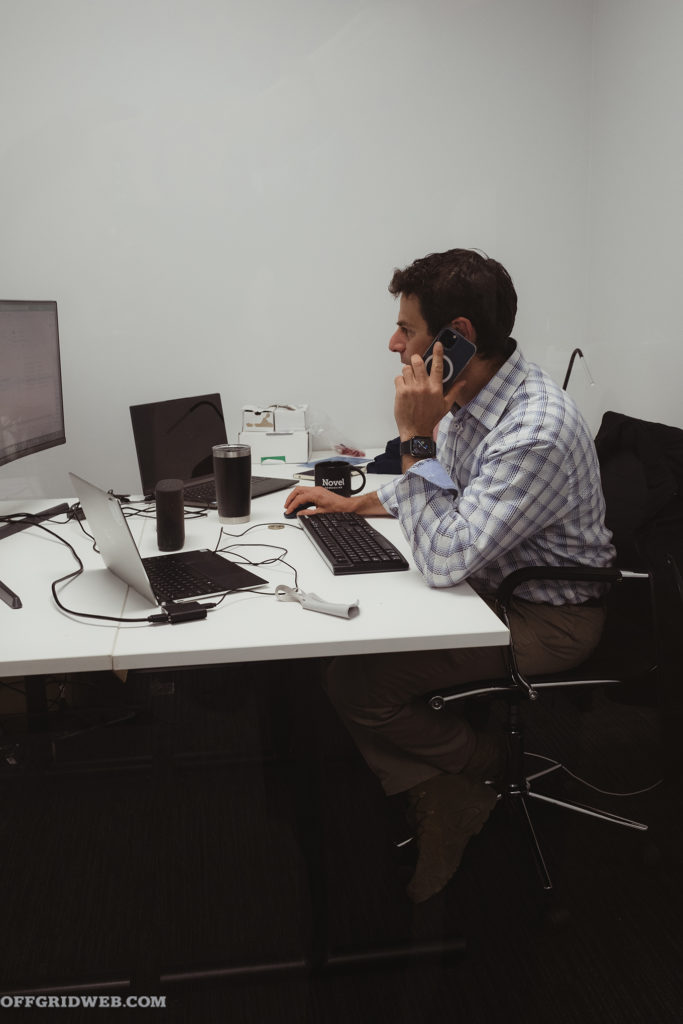
I was thrilled to be accepted in the Israel Security Agency academy for protective agents. There, I rediscovered the importance of discipline, perseverance, and commitment. The ISA training pushed me beyond what I thought I was capable of, and for that, I will be forever thankful.
What were some of the biggest challenges you faced when dealing specifically with airport security?
Michael Rozin: The weight of ensuring I don’t miss a terrorist or another threat actor was significant. I was responsible for thousands of lives. I took my job seriously and have always been concerned about the possibility of missing the indicators and failing to identify and stop potential perpetrators proactively. In parallel, I was challenged to balance humans’ desire for convenience and security.
What led you to bring your experience and business to the U.S.?
Michael Rozin: I’d never imagined that I’d live and operate a business in the United States. God, however, had this plan in place. I met my life partner, wife, and now a co-owner of our business in Israel. It was love at first sight. She is from the U.S., and several years after our initial meeting, I followed my heart and found myself with her in Minnesota. Once here, I realized how impactful the knowledge and experience the State of Israel taught me could be. Thus, I decided to dedicate my career to help the U.S. prevent mass violence and other nefarious acts, and to be an ambassador of sorts for the Israeli security industry.
How have the advent of COVID-19 and its associated restrictions and social distancing requirements affected your approach to large event security?
Michael Rozin: Simply put, currently, there are not many mass gatherings that occur. Thus, the need for security of large events has presently been put on pause. COVID has also temporarily changed the threat landscape. We believe that next year, as COVID is getting under control, we will see a spike in violence across the United States. We hope organizations take the time now to invest in effective security measures.
Much of your methodology focuses on behavioral profiling. But in American law enforcement, “profiling” is a controversial term that stirs up fears of racism. How would you explain behavioral profiling to people who have these kinds of concerns?
Michael Rozin: The word “profiling” in the context of law enforcement in the U.S., given its history, is associated with racial profiling and discrimination. However, behavioral profiling is precisely the opposite of racial profiling for the following reasons:
Behavioral profiling cannot focus on one characteristic like age, gender, or race. If it were going to do that, it would leave the asset exposed to danger and unprotected. The factual reality in the United States is that threat actors vary significantly in their ethnic, cultural, gender, and socioeconomic characteristics. Thus, if a security apparatus is focused on such characteristics, it’s like having a door, but not a wall.
Behavioral profiling is a highly effective and systematic manner of identifying individuals with potential intent to cause harm. It’s based on proven, scientifically validated principles, which show that people who intend to conceal their true intentions within a properly designed security environment display common indicators of potential malicious intent. These indicators cover things like actions, behavior and appearance, belongings, abnormality from expected norms, identification, and documents. These groups of indicators don’t correlate with one’s race, ethnicity, gender, or socioeconomic status.
At its core, behavioral profiling is designed to allow the security professional to rapidly assess any protected environment populated with a number of people and proactively select those that require additional attention. It’s an intelligent, risk-based approach to security that allows us to allocate proper resources to situations and individuals that require it, rather than waste resources where there’s no need for additional protection.
Racial profiling is not only morally and ethically wrong, it’s also operationally ineffective. The history of planned acts of violence in the United States and beyond teaches us that perpetrators of such acts vary based on ethnic, socioeconomic, religious, cultural, and gender characteristics. Therefore, from the operational standpoint, focusing on any one of these characteristics is ineffective and exposes the protected environment to a multitude of threat actors. Our research and methodology are concentrated strictly on proven behavioral, action-based, informational inconsistencies, and other indicators commonly associated with perpetrators of planned acts of violence. These indicators signal the security personnel to act proactively and attempt to refute any identified security concern.
Behavioral profiling sometimes gets miscategorized as instinct, intuition, or having a hunch. Can you talk a little bit about some of the hard science that goes into reading human behavior, and what makes behavioral profiling effective and repeatable?
Michael Rozin: Behavior profiling is at times mistakenly looked at as an intuition-based security concept. While intuition always plays a role in humans’ ability to survive a dangerous situation, the professional behavior profiling security system is based on: 1) an extensive operational research of common aggressors’ tactics, techniques, and procedures, and 2) scientific research of humans’ brain functionality, response to different forms of danger, and the human body’s cardiovascular activity.
Specifically, professional behavioral profiling is based on the extensive research of scientists like the following people:
- Nobel Prize winner professor Dr. Daniel Kahneman, who understood the significance of two distinct brain functionalities and how they affect deception, response to complex situations, and information
- U.S. scientist Paul MacLean who discovered an evolutionary triune brain theory
- Well-known scientist Dr. Paul Ekman who connected the facial expressions to emotions felt by humans
- Psychologist David Meyers, who interpreted the importance of the true responses of our brain to perceived danger
- Daniel Goleman, who interpreted the authenticity of limbic brain elicited behaviors
- Amanda Gregory, a behavioral researcher who validated several significant behavioral interpretation principles
- Mark Knapp, a well-known nonverbal communication researcher
There are many other experts from within the security and intelligence agencies community as well.
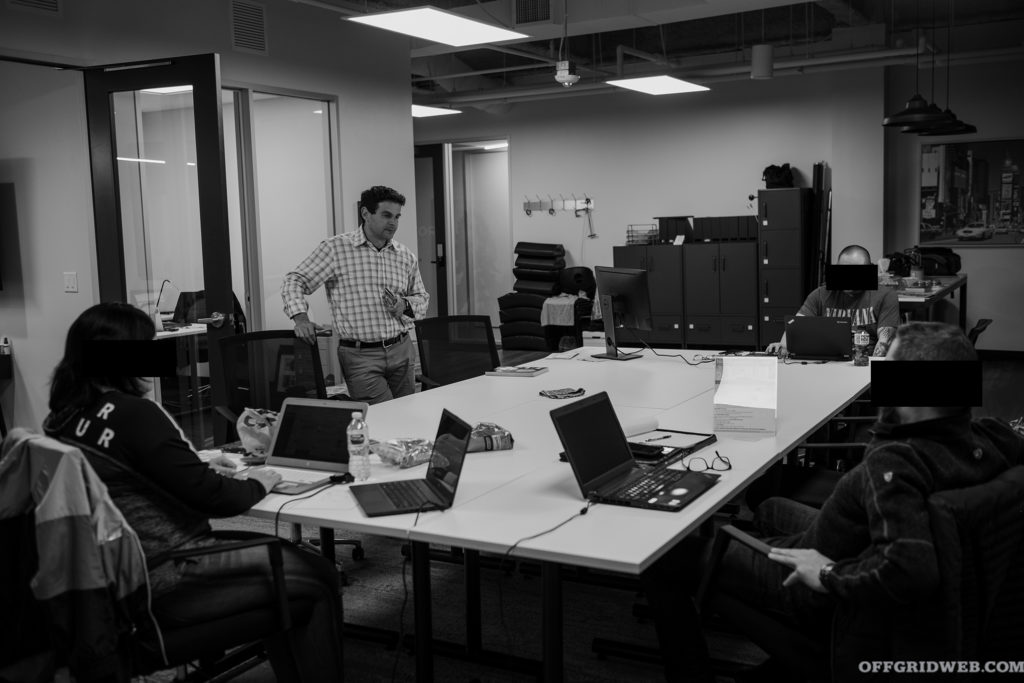
Behavioral profiling has proven to be one of the most effective security tools because it’s one of the only reliable security measures. When appropriately applied, it allows for proactive identification of the threat actor before the incident occurs. It’s also easily applicable to open and close operational environments, and could become a central security strategy supported by physical measures and technology.
We were impressed to learn that you’re fluent in four languages. Do you consider language proficiency a survival skill? Have there been instances in your career where it helped you recognize a threat?
Michael Rozin: Thank you! I do believe language proficiency is a critical survival skill in modern-day life. Languages are also a window to the local culture and thinking. It’s an imperative part of any well-rounded security professional who interacts with multiple cultures and needs to adapt fast to any environment. Knowing multiple languages helped me on several occasions to obtain critical information required to resolve or de-escalate identified threats. On hundreds of occasions, knowing the language helped me establish an immediate rapport vital in solving the security task at hand. I enjoy learning new languages and am currently working on advancing my Greek and Arabic.
Michael Rozin’s EDC:
- Smith & Wesson M&P Bodyguard 380
- ASP Agent Infinity Concealable Baton
- ASP Palm Compact Defender Pepper Spray
- Tactical knife (custom made for Krav Maga instructors) with glass-breaker and belt cutter
In your role as Special Operations Security Captain at the Mall of America, what were some of the programs you implemented to enhance emergency preparedness? How can these be applied on a larger scale throughout the U.S.?
Michael Rozin: As a Special Operations Captain in Mall of America, I’ve had the privilege of instituting several programs geared toward protecting it from mass violence. At the core, in partnership with Mall of America senior leadership, I have developed a Risk Assessment and Mitigation program. This innovative behavior threat-detection program allowed Mall of America to prevent several potential planned acts of violence, enhance overall security, and become valuable sources of actionable intelligence information for the state and federal intelligence services while improving the customer service and overall image of Mall of America. This program was presented in July of 2008 to the United States House of Representatives Committee on Homeland Security as a model, and best practice for securing mass gathering places post Sept. 11.
Have you noticed any substantial differences between the Israeli and American approaches to counterterrorism tactics, gear, or mindset?
Michael Rozin: There’s a difference between the Israeli and the U.S. approach to counterterrorism. While the U.S. gear is a bit more sophisticated and is more abundant, I found that the Israeli mindset of proactivity, direct and aggressive engagement runs in contrast to the more reserved and measured U.S approach.
How do you feel uniformed versus plain-clothes security affects possible threats?
Michael Rozin: Both uniform and plain-clothes security personnel play an important role in any security operation. Uniformed security can act as a direct and visible deterrent. This can stop a number of small-scale threats. Plain-clothes security has two different types: a) visually undercover; and b) completely undercover. The visually undercover personnel create a sense of unpredictability for any potential perpetrator and significantly contribute to deterrence. The completely undercover plain-clothes security are primarily tactical personnel enabling quick and tactically advantageous response to unfolding security incidents. Thus, the completely undercover officers are primarily enhancing the response function of any security department.
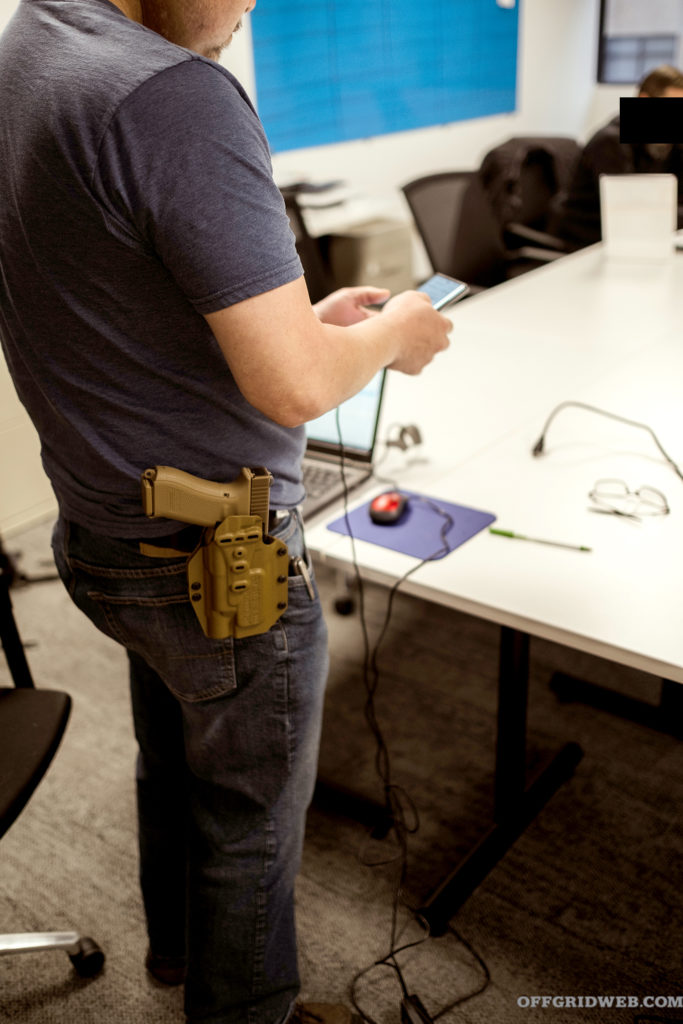
What are some steps the average individual can take to improve the safety of their family in a crowded public setting?
Michael Rozin: The biggest and most important step is basic situational awareness. Know where you are and be aware of your surroundings at all times. Whether you’re going to your job, going to the market, or to an event, pay attention to what is going on at all times.
What types of problems are typically spontaneous among large crowds, and what types of threats are planned?
Michael Rozin: Large gatherings represent an attractive target for anyone wishing to carry out a mass-violence incident. Therefore, security professionals must consider threats, such as an active assailant, explosive device, vehicle ramming, or a weaponized drone. When it comes to public protests that attract large crowds, there’s an added threat of spontaneous violence coming from agitators mixed within the crowd. These agitators specialize in inciting violence from inside the group or, most commonly, confrontations between the protestors and law enforcement. Members of the public attending the protests and police forces must be trained on quickly identifying and isolating these agitators to prevent widespread incidents from erupting.

How do U.S. self-defense laws differ from self-defense laws in Israel?
Michael Rozin: The self-defense and overall use-of-force laws and methods in Israel are significantly stricter and more effective, I feel, than the ones currently in the United States. The overarching principle in Israel is that for anyone to consider someone a lethal and immediate threat, two factors must be present simultaneously: 1) demonstrated intent to carry an act of violence, and 2) displayed means for the attack. Only when these two factors are present at the same time, it is allowed to deploy lethal measures. In Israel, there’s also a significant training and examination given to security, law enforcement, and even civilians who can carry firearms to ensure they can follow this principle under stress. The laws are simple, and the training is highly effective.
Additionally, the Israeli Krav Maga training is mandatory training for security and law-enforcement personnel in Israel. The Krav Maga system is highly effective, as it eliminates other types of ineffective and significantly more damaging force. One of the complicating factors in the United States is that this country is built out of 50 different states with 50 different sets of laws, methods, training requirements, and philosophies for self-defense and use-of-force. Thus, there is no uniformity in laws, training, and philosophy. Additionally, the self-defense concept in the United States is fuzzy, many times with multiple complicated options given to individuals with minimal training. Lack of uniformity and complex laws and guidelines can create unrealistic expectations for individuals to follow the U.S. self-defense laws properly under stress.
[Editor’s Note: Photography by Samantha Lauraina.
Michael Rozin
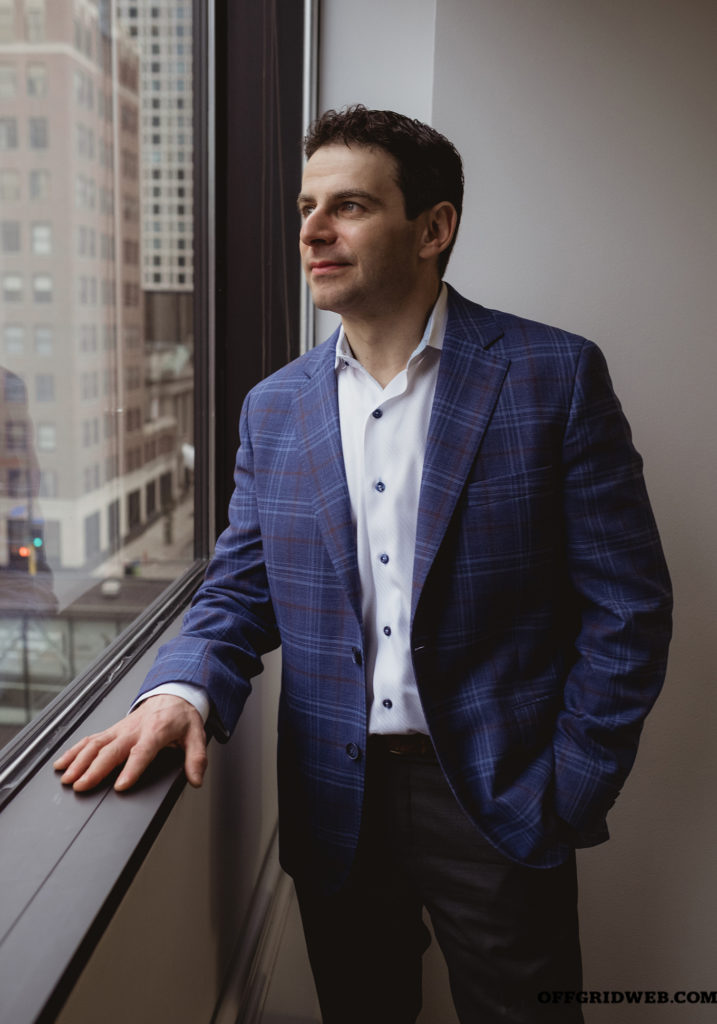
Education: Counter-Terrorism Studies, Institute for Counter-Terrorism at the Interdisciplinary Center, Herzliya, Israel
Childhood idols: Michael Jordan and Jean-Claude Van Damme
Recommended reading list:
- The Black Swan by Nassim Taleb
- Thinking, Fast and Slow by Daniel Kahneman
- Telling Lies by Paul Ekman
- The Gift of Fear by Gavin de Becker
- Blink by Malcolm Gladwell
Favorite movie: Munich (Steven Spielberg version)
Favorite drink: Single malt scotch (Balvenie DoubleWood 17-year-old)
Favorite quote: “Your attitude, not your aptitude, will determine your altitude.” –Zig Ziglar
Military experience: Barkan Unit, The Israel Defense Forces
URL: rozinsecurity.com
More Spotlights and Gear on OFFGRID
- Brady Pesola: Ensuring a Safe Passage for Veterans.
- John Nores: The Patron Saint of Mother Nature.
- Jeff Franklin: The Commando Whisperer.
- Tom Marshall: The Inside Man.
- Mike Glover: Redefining Survival.
- Byron Rodgers: Superior Security Specialist.
- Unobtainium Gear Active Night Vision Recording System: Taping what you see.
- Night Vision Goggles: A Double Primer.
Related Posts
The post Michael Rozin: Leave Nothing to Chance appeared first on RECOIL OFFGRID.


